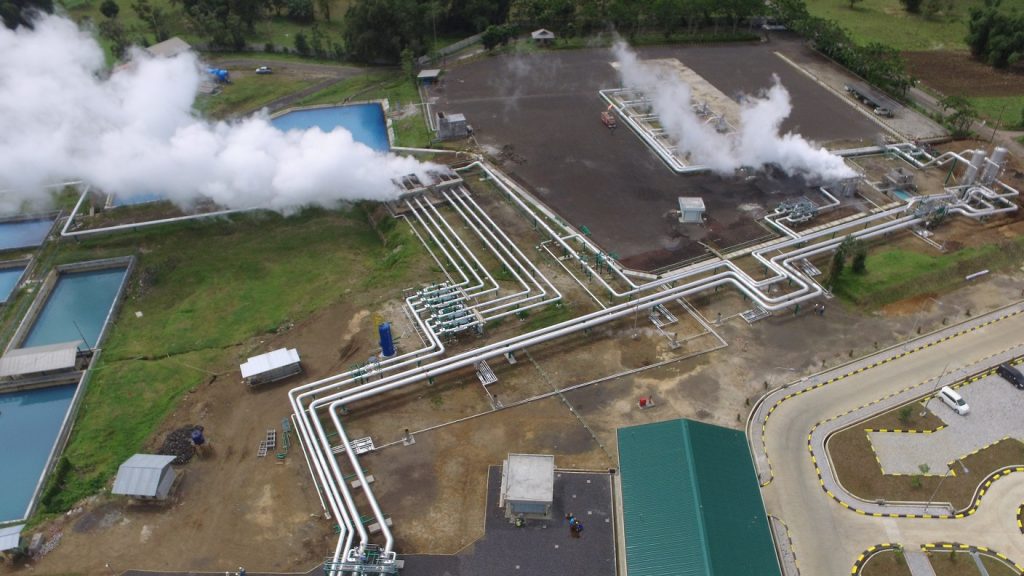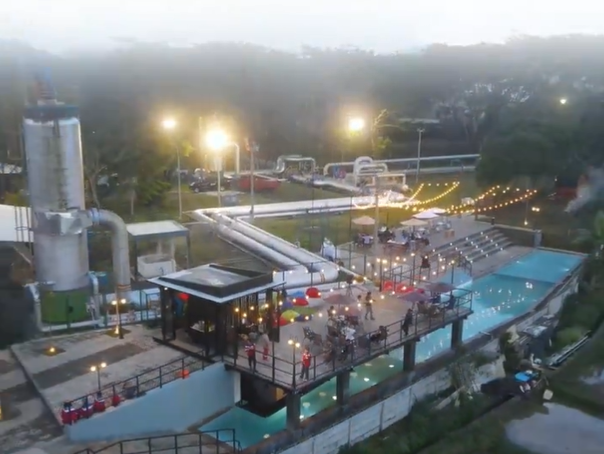
“With the inauguration of the Lao-Lao Geopark, it is emphasized that geothermal is not only a green industry that coexists in harmony with the environment, but can also be a driver of the country’s tourism industry,” said Julfi Hadi, President Director of PGEO.
Work on the Lao-Lao Geopark took about a year and was officially completed on 30 December 2023. Heat for the geopark is supplied by the Lahendong geothermal field, which is also operated by PGEO and currently supplies about 30% of the power needs of the North Sulawesi and Gorontalo regions. Geothermal fluid that is not utilized passes through a heat exchanger, producing warm water for the geopark at temperatures between 37 to 39 °C.
“In the future, we hope that this project can be used for non-conventional research and development of geothermal potential for the tourism sector,” added Julfi.

Lao-Lao Geopark in North Sulawesi, Indonesia (source: video screenshot, PGE via Instagram)
Efforts to explore wider opportunities for the use of geothermal resources had been announced by PGEO a few years prior. Speaking during a webinar in mid-2022, then-President Director Ahmad Yuniarto said that there are at least five business opportunities that the state-owned company is exploring – green hydrogen, CO2 processing, extraction of rare metals, agriculture, and tourism.
Ahmad also stated that PGEO was already supplying renewable heat for potato farming in Garut and Kamojang, two areas where PT PGE’s geothermal power plant operates.
Geotourism is a well-established concept, with the Blue Lagoon in Iceland as one of the most prominent examples. The success of the Blue Lagoon has been emulated by Olkaria in Kenya, and is the blueprint for a geothermal spa being planned in Menengai.